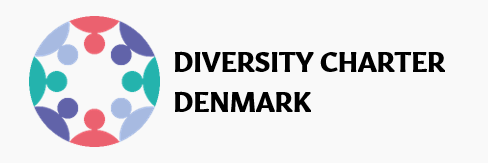IKEA Denmark Trains Leaders in the Use of Personal Pronouns
36% of transgender and non-binary people feel either completely unable or only to a limited extent able to be as open about their gender identity as they would like. IKEA Denmark has therefore trained its management and HR teams on what it means to have a non-binary understanding of gender.
According to Sara Lynge Skovhede, Equality, Diversity & Inclusion Leader at IKEA Denmark, IKEA employees — just like their customers — are diverse. That’s why it’s important to create an inclusive culture, where respect and equality are the focus.
“Our diversity initiatives are focused on pushing conversations around topics that are important to talk about openly, and with the intention of working with others to create a more inclusive labor market,” explains Sara.
This is exactly why IKEA has launched workshops focused on personal pronouns.
These workshops cover facts about the well-being of LGBT+ people in society, in order to foster understanding of the importance of the topic. Additionally, they present IKEA’s latest internal initiatives in this area and how they connect to the broader strategy of building an inclusive culture.
“In other words, we’re putting more words to all the letters in the rainbow,” says Sara.
The Ambition Behind the Initiative
The initiative was launched in response to societal shifts and changes in IKEA’s employee demographics, where more young employees identify with different gender categories than in the past. Sara adds that as a company,
“IKEA wants to step into this new framework and ensure that leaders are equipped with the relevant knowledge, so that everyone continues to feel respected in the future.”
Sara also emphasizes the importance of all IKEA employees feeling respected for who they are, and that the company understands practical needs like gender-neutral changing rooms and inclusive language.
Coming Out as Non-Binary at Work
Silas is non-binary and uses the personal pronouns they/them. They work at IKEA Denmark and came out as non-binary at their workplace. Silas shared their process and lived experiences with us.
“There are many challenges to ‘coming out’ at work. It can be tough to explain what non-binary means, and emotionally difficult to come out as a gender that many cisgender people don’t know exists. You often face a different kind of skepticism when it comes to the concept of gender not being binary,” says Silas.
However, Silas experienced a very supportive workplace. They reached out to Sara Skovhede, who provided a lot of support through meetings and phone calls.
“During the process, Sara always asked what was best for me in terms of coming out, what I needed, and explained what tools the workplace had to support me,” Silas elaborates.
The training in personal pronouns specifically creates a space where people can practice using the correct pronouns, ask questions about how to use them in different sentences, and practice not over-apologizing when they use the “wrong” pronoun.
As Silas explains:
“Everyone makes mistakes the first many times they refer to someone as they/them or ‘hen’ – it’s inevitable. That’s why it’s important to not only practice using pronouns but also practice having the conversation about pronouns.”
This is exactly what the personal pronoun training is designed to help with.
Get Inspired
Silas shares how companies can focus on gender-neutral educational materials in internal training and meetings, and adds that
“awareness around humor and gendered language in the workplace is also important, just like shared bathrooms help foster a sense of inclusion.”
We asked Sara what companies can do to promote the inclusion of non-binary employees. She says,
“A good place to start is by seeking out knowledge about what it means to be non-binary.”
She also recommends gathering feedback from employees.
“At IKEA, employee input is important, but the responsibility to lead the way and drive change lies with leadership,” concludes Sara.
Visit www.lgbt.dk to learn more about non-binary gender identities.
Translated from Danish to English by Foreningen Lige adgang.
